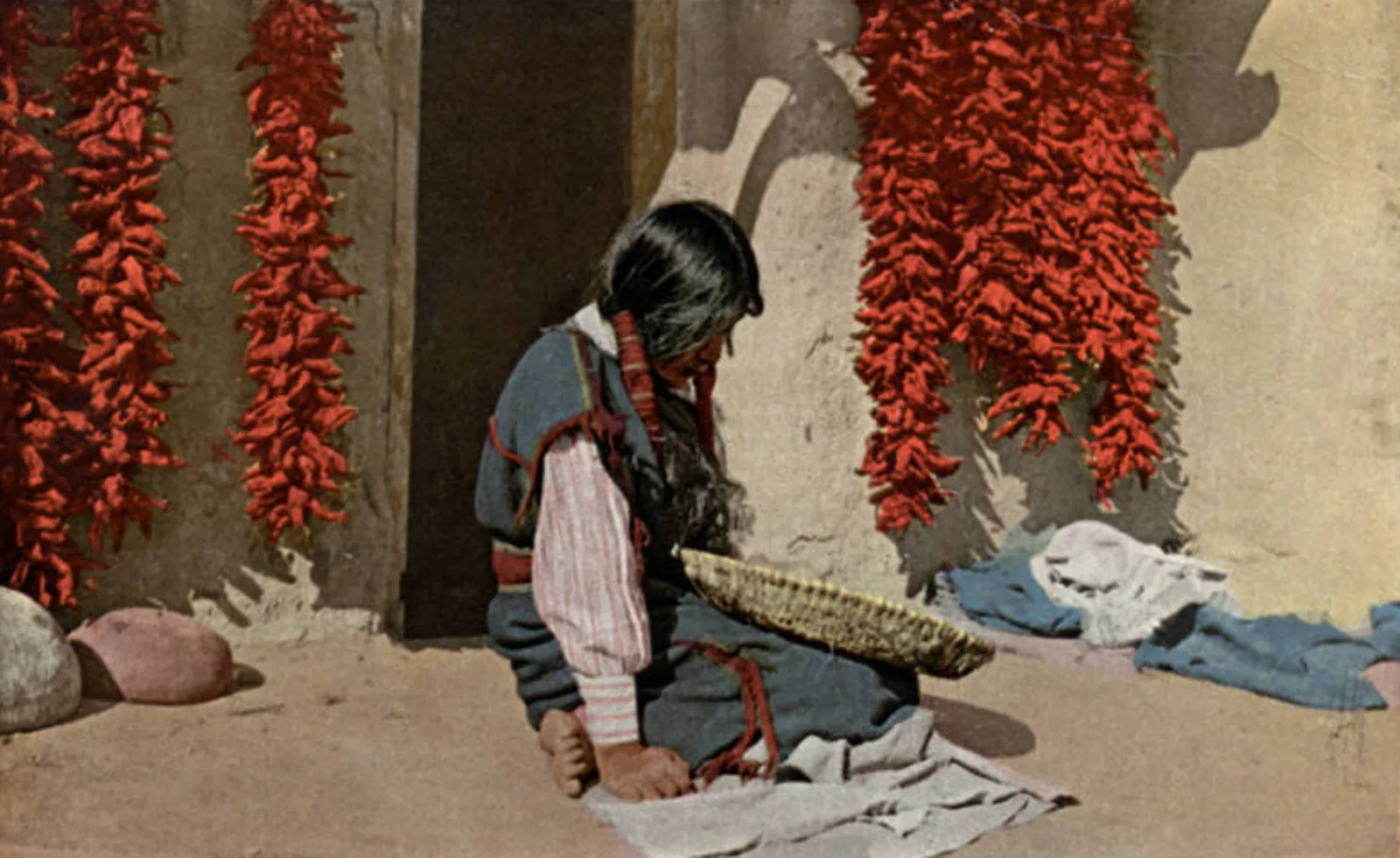What can books from the early modern period tell us about Indigenous foodways, and what do they miss? How have Indigenous peoples preserved traditional foodways in spite of settler-colonialism, and how does this work continue today?
In this virtual conversation moderated by the Newberry's Rose Miron, chef Sean Sherman (Oglala Lakota) and anthropologists Elizabeth Hoover and Eli Suzukovich III (Little Shell Band of Chippewa-Cree/Krajina Serb) discuss how Indigenous foodways have been represented, appropriated, and misunderstood throughout history. Emphasizing the contemporary revitalization of traditional Indigenous foodways led by Native people, the panel will highlight efforts to protect Indigenous food sovereignty, resist centuries of environmental exploitation, and remove colonial influences from diets.
Questions about this program can be sent to renaissance@newberry.org.
This program is part of “Food and the Book,” a virtual conference co-sponsored by the Center for Renaissance Studies and the D'Arcy McNickle Center for American Indian and Indigenous Studies at the Newberry Library and Before ‘Farm to Table’: Early Modern Foodways and Cultures, a Mellon Foundation initiative in collaborative research at the Folger Institute at the Folger Shakespeare Library.
#FoodAndTheBook #BeforeFarmToTable
About the speakers:
Elizabeth Hoover is an associate professor in the Environmental Science and Policy Management department at the University of California Berkeley whose work focuses on food and environmental justice for Native communities. Her first book, The River is In Us: Fighting Toxics in a Mohawk Community (University of Minnesota Press, 2107), is an ethnographic exploration of Akwesasne Mohawks’ response to Superfund contamination and environmental health research. Her second book project-in-progress, From Garden Warriors to Good Seeds: Indigenizing the Local Food Movement, explores Native American community-based farming and gardening projects; the ways in which people are defining and enacting concepts like food sovereignty and seed sovereignty; the role of Native chefs in the food movement; and the fight against the fossil fuel industry to protect heritage foods. She also recently co-edited Indigenous Food Sovereignty in the United States with Devon Mihesuah (University of Oklahoma Press, 2019). Elizabeth has published articles about Native American food sovereignty and seed rematriation; environmental reproductive justice in Native American communities; and tribal citizen science and community based participatory research.
Chef Sean Sherman (Oglala Lakota) was born in Pine Ridge, South Dakota and has been cooking across the US and Mexico for the past 30 years. Renowned nationally and internationally in the culinary movement involving Indigenous foods, his main focus has been on the revitalization and evolution of Indigenous foods systems throughout North America. Chef Sean has studied extensively on his own to determine the foundations of these food systems in order to gain an understanding of how to bring Native American cuisine back to today’s world. In 2014, he opened The Sioux Chef, a catering and food education business in the Minneapolis/Saint Paul area. He and his business partner Dana Thompson also designed and opened the Tatanka Truck, which featured 100% pre-contact foods of the Dakota and Minnesota territories. In October 2017, Sean was able to perform the first decolonized dinner at the James Beard House in Manhattan along with his team. His first book, The Sioux Chef’s Indigenous Kitchen, was awarded the James Beard medal for Best American Cookbook for 2018 and was selected as one of the top ten cookbooks of 2017 by the LA Times, the San Francisco Chronicle, and the Smithsonian Magazine. Also that year, Chef Sean was selected as a Bush Fellow and received the 2019 Leadership Award by the James Beard Foundation. The Sioux Chef team is continuing its mission of helping to educate audiences and make Indigenous foods more accessible to as many communities as possible through the recently founded nonprofit North American Traditional Indigenous Food Systems (NATIFS). Learn more at www.natifs.org.
Eli Suzukovich III (Little Shell Band of Chippewa-Cree/Krajina Serb) is an anthropologist whose work focuses on cultural resource management, ethnography, religion, oral history, and ethno-biology. Throughout his academic and professional careers, Eli’s work has included community level research within the American Indian communities of Chicago and Missoula, Montana; archival collections research and management; applied ethnography; forensic field and laboratory research; and working as a field technician for the Montana USDA. Currently, Eli is a research scientist in the Anthropology Department and Negaunee Integrative Research Center at the Field Museum, where he is a member of the curation team for the renovation of the Native North America Hall (slated to open in late fall 2021). Along with museum work, Eli is a lecturer in the Environmental Policy and Culture Program at Northwestern and a faculty affiliate in the Native American and Indigenous Research Institute. Outside of his academic and professional work, Eli serves on the National Urban and Community Forestry Advisory Council, a FACA council that works with the U.S. Forest Service and USDA in developing urban forestry programs, funding protocols, and policy recommendations.
Rose Miron is the Director of the D’Arcy McNickle Center for American Indian and Indigenous Studies at the Newberry. Her research explores Indigenous interventions in public history in the Northeast and the Great Lakes regions, as well as American Indian nationalism and activism in the twentieth century. Her current book project is tentatively entitled Indigenous Archival Activism: Narrating Nationalism in the Mohican Tribal Archive and Beyond. She is the author of a recent article about the repatriation of material culture that was published in Native American and Indigenous Studies, and her work on monuments has been published by the National Council on Public History.
Your generosity is vital in keeping the library’s programs, exhibitions, and reading rooms free and accessible to everyone. Make a donation today.
